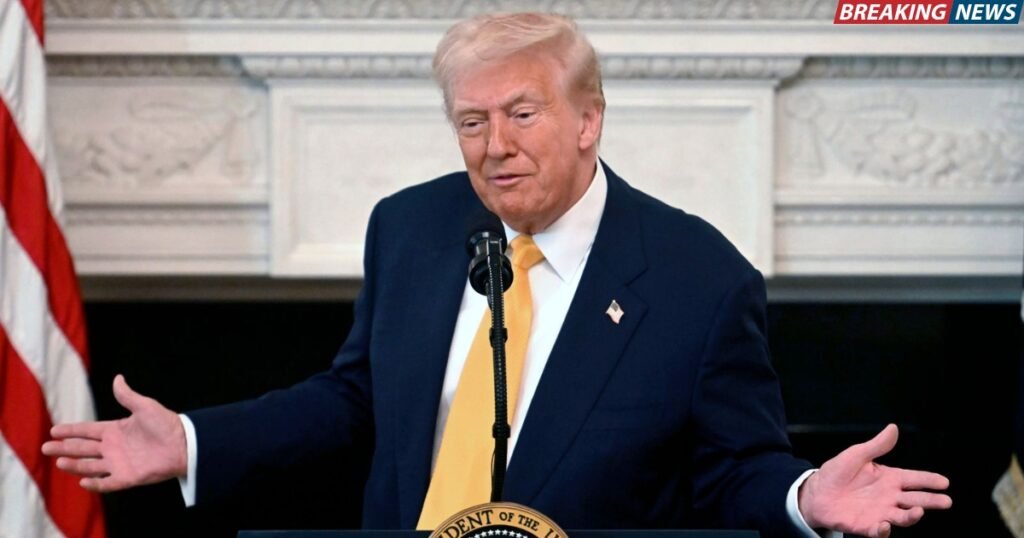
President Donald Trump’s renewed clashes with the U.S. judiciary have intensified debates over judicial independence and executive power. As federal judges face rising threats and block key policies, tensions mount between courts and political leaders. Thus, this unfolding legal standoff raises urgent questions about the balance of power and the stability of democratic institutions in America.
Federal Judges Push Back Against Executive Overreach
Federal judges across the United States are pushing back against what they perceive as executive overreach by the Trump Administration concerning immigration policies and the restructuring of federal policies. Such judicial resistance underscores a growing tension between the executive branch and the judiciary, raising questions about the balance of power within the U.S. government.
One of the primary areas of contention is the administration’s expedited deportation policies. Federal judges have criticized these “lightning-fast” removals for violating federal laws that protect individuals from deportation to countries where they may face persecution or harm. Notably, deportations to high-risk nations like South Sedan and El Salvador have occurred with minimal notice. It is sometimes before individuals can legally challenge their removal.
In a significant case, a federal appeal court upheld a district judge’s order requiring the administration to facilitate the return of a Venezuelan man wrongfully deported to El Salvador. The court emphasized the importance of due process, highlighting the judiciary’s role in upholding legal protections amid national security claims.
Political Rhetoric and Its Impact on Judicial Safety
Political attacks on the judiciary are escalating, fueling concerns about the safety and independence of federal judges. As the rhetoric intensifies, so do real-world threats.
- Increased Threats Against Judges: Federal judges report a sharp rise in personal threats, harassment, and intimidation. Thus, tactics include “swatting” meaning fake emergency calls to provoke armed police responses, doxing, and suspicious deliveries to judges’ homes and chambers.
- Calls for Enhanced Security Measures: Judges and court officials are urging Congress to fund independence, and armed security protections for the judiciary. Furthermore, the proposals suggest removing security oversight from the DOJ to prevent conflict of interest, given the judges often rule on DOJ-related matters.
- Chilling Effect on Judicial Independence: Threats and political attacks may cause judges to feel pressured, influencing their willingness to rule impartially on controversial cases. Thus, some legal scholars warn this could erode the core democratic principle of an independent judiciary.
- Legislative and Institutional Reactions: Bipartisan efforts are emerging to introduce judicial security bills in Congress. The U.S. Marshal Service, while still in charge of judicial security, is reportedly under strain and struggling to keep up with demand.
Vice President Vance Joins Trump in Criticizing Courts
Vice President J.D. Vance has joined President Donald Trump in sharply criticizing the federal judiciary, accusing judges of obstructing the administration’s agenda. His remarks signal growing executive pressure on the courts and raise alarms about the erosion of judicial independence.
1. Echoing Trump’s Attacks on the Judiciary
- Vance has publicly aligned with Trump in framing judges as unelected bureaucrats interfering with the will of the people.
- He has labeled recent rulings against immigration and executive policies as “ideologically driven” and “undemocratic.”
2. Targeting Specific Court Decisions
- Vance specifically criticized judges who blocked expedited deportation and other immigration enforcement measures.
- He argued that courts are undermining national sovereignty by preventing the executive branch from enforcing border laws.
3. Warning to the Judiciary
- Vance warned that courts could face consequences if they continue to “defy the mandate of the voters.”
- Critics interpret these statements as thinly veiled threats against judiciary independence and constitutional checks.
4. Appealing to Populist Base
- His comments appear aimed at energizing Trump’s populist base by portraying the judiciary as part of an elite establishment.
- This rhetoric aligns with broader efforts to challenge institutional norms and consolidate executive authority.
5. Raising Concerns Among Legal Experts
- Constitutional scholars warn that Vance’s statements may incite distrust in the judiciary and weaken the separation of powers.
- Many view these attacks as part of a broader trend toward delegitimizing legal institutions.
6. Impact on Judicial Behavior
- Some legal analysts worry that ongoing political attacks may pressure judges to temper their ruling out of fear for safety or political backlash.
- Thus, this could distort legal outcomes and compromise impartial justice.
From Immigration to Censorship: Courts Block Key Policies
Federal courts have intervened to block key policies of the Trump administration, citing constitutional violations and executive overreach. These judicial actions span critical areas such as immigration enforcement, censorship, and administrative restructuring.
- Termination of Afghan TPS Sparks Legal and Public Backlash: The decision to revoke Temporary Protected Status for around 10,000 Afghans has drawn criticism from veterans and advocacy groups. Furthermore, legal challenges argue that the move violates procedural norms and endangers individuals who supported U.S. forces during the Afghanistan conflict.
- Citizenship Denial Executive Order Blocked: An executive order denying citizenship to certain U.S.-born children, mainly those of immigrants without legal permanent status. It has been ruled constitutional by federal judges. Nationwide injunctions were issued against its enforcement, highlighting concerns over constitutional protections.
- Mass Federal Worker Layoffs Halted by Court: A federal judge extended an injunction against the administration’s plan to implement mass layoffs and reorganize 22 federal agencies. Therefore, the court emphasized that changes to federal structures require congressional approval, reinforcing the separation of powers.
- Sanctions Against Law Firm Struck Down: A federal judge invalidated an executive order that sanctioned the law firm Jenner & Block, stating that the action was an unconstitutional attempt to retaliate against legal representation opposing the administration. Thus, the ruling underscores the judiciary’s role in protecting legal advocacy.
- Executive Orders on DEI Programs Face Legal Hurdles: Executive orders aimed at dismantling diversity, equity, and inclusive programs have been challenged in courts. Lawsuits contend that these orders infringe upon free speech and due process rights, with cases like National Urban League v. Trump highlighting the legal pushback.
Conclusion
The growing legal clashes between federal courts and the Trump administration highlight a pivotal moment in American democracy. As judges resist executive overreach and face mounting political pressure, the integrity of the judiciary system is tested. Thus, these developments underscore the vital importance of maintaining constitutional checks and balances in governance.



